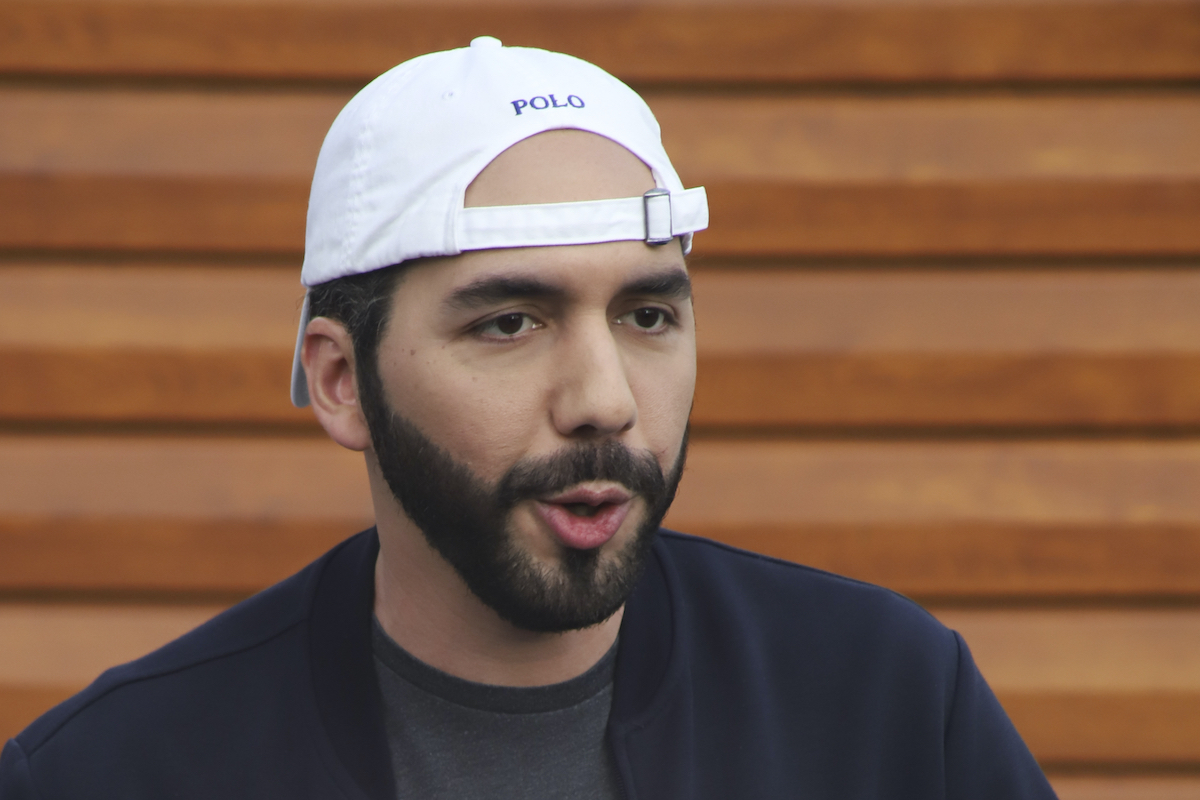

El Salvador President Nayib Bukele (AP Photo/Salvador Melendez, File)
By MARCOS ALEMÁN, Associated Press
SAN SALVADOR, El Salvador (AP) — El Salvador’s Congress, pushing further in the government’s dramatic crackdown on gangs, has authorized prison sentences of 10 to 15 years for news media that reproduce or disseminate messages from the gangs, alarming press freedom groups.
The vote late Tuesday was the latest in a flurry of legislative action against the gangs after 62 suspected gang killings on March 26 led President Nayib Bukele to seek and win a state of emergency. Harsh measures against imprisoned gang members and increased prison sentences followed, as well as the arrests of some 6,000 suspected gang members.
But the newest law expands Bukele’s offensive to the press, another of his frequent targets.
“We consider these reforms to be a clear attempt at censorship of media,” the El Salvador Journalists Association said in a statement Wednesday. “Prohibiting journalism from reporting the reality in which thousands of people inhabiting these gang-controlled communities live … will create an illusion that is not faithful to the truth.”
The reforms passed with affirmative votes from 63 of the 84 lawmakers and went into effect when published Tuesday night in the official gazette.
The law says that “radio, television, written or digital media” would face 10 to 15 years in prison for “the reproduction or transmission to the general population of messages or statements originating or presumably originating from said criminal groups, that could generate anxiety and panic in the population.”
The measure also establishes prison sentences of 10 to 15 years for painting the sort of graffiti commonly used to mark gang territory in neighborhoods across El Salvador.
Bukele has lashed out at the media, as well as nongovernmental organizations and international bodies that have been critical of some of the measures taken against the gangs. He accuses them of siding with the criminals.
Under the state of emergency, the government has limited freedom of association, suspended the right to be informed of one’s rights at the time of arrest and denied access to lawyers. A suspect can now be held for 15 days without charges rather than 72 hours. Imprisoned gang members had their meals reduced to twice a day, are not allowed out of their cells and had their mattresses taken.
Bukele said via Twitter Tuesday that he had sent proposals to the Legislative Assembly, adding, “We will see, once again, who is with the people and who is with the gangs.”
Marcela Pineda, a lawmaker from Bukele’s New Ideas Party, said Tuesday that “with those reforms we are telling the gangsters that they can’t send audios or text chains to generate fear in the population.”
Bukele had hit that theme earlier in the day, saying there were rumors gangs might retaliate for the crackdown by attacking civilians and he threatened to withhold food from imprisoned gang members if they did.
The press association also noted there have been reports suggesting that Bukele’s administration, like other administrations before it, had made deals with the gangs to lower the murder rate and provide political support in exchange for other benefits. The U.S. Treasury Department echoed those allegations in December, saying that Bukele’s government had bought the gangs’ support with financial benefits and privileges for imprisoned leaders. Bukele has vehemently denied the accusations.
“I don’t care what the international organizations say. Let them come here and protect our people,” the President said. “They can take their gang members if they want; we’ll give them all of them.”


